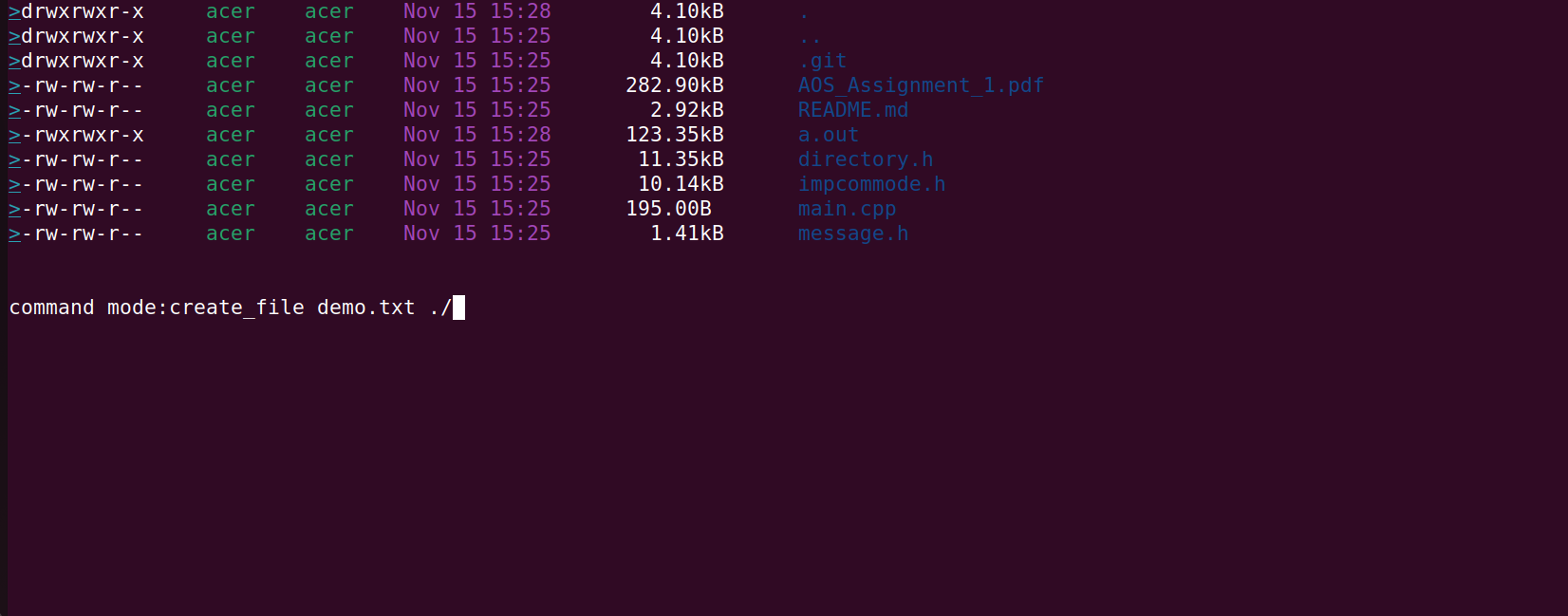A file explorer for linux systems that runs on terminal
1. Platform: Linux
2. Software Requirement:
- G++ compiler
- To install G++ :
sudo apt-get install g++
- To install G++ :
-
Open your terminal with present working directory as the project folder. Then compile main.cpp file.
g++ main.cpp -
Then finally run the project as shown below.
./a.out
1.1 Read and display list of files and directories in the current folder
-
File explorer show each file in the directory (one entry per line). The following attributes are visible for each file
- File Name
- File size (Human readable format similar to ls -lh)
- Ownership (User & Group) & Permissions
- Last modified
-
The File explorer also handle scrolling (vertical overflow) in case the directory has a lot of files.
-
The file explorer also show the entries “.” & “..” for current and parent directory respectively.
-
User is able to navigate up & down the file list using corresponding arrow keys.
1.2 Open files & directories
- When enter is pressed
- Directory - It will Clear the screen and Navigate into the directory and shows the files & directories inside it as specified in point 1
- Files - It will open files using the corresponding default application.
The application is enter the command mode whenever the : (colon) key
is pressed.
Upon entering the command mode the user should be able to enter
different commands. All commands should appear in a bottom status bar
2.1 copy, move and rename
copy <source_file(s)> <destination_directory>
move <source_file(s)> <destination_directory>
Eg:
copy foo.txt bar.txt baz.mp4 ~/foobar
move foo.txt bar.txt baz.mp4 ~/foobar
rename foo.txt bar.txt
Copying / Moving of directories is also be implemented
2.2 create files and directories
create_file <file_name> <destination_path>
create_dir <dir_name> <destination_path>
Eg:
create_file foo.txt ~/foobar
create_file foo.txt .
create_dir folder_name ~/foobar
2.3 delete files and directories
delete_file <file_path>
delete_dir <directory_path>
Eg:
delete_file ~/foobar/foo.txt.
delete_dir ~/foobar/folder_name
2.4 goto
goto <directory_path>
Eg:
goto /home/udrasht/
goto ~
2.5 Search a file or folder given fullname.
search <filename>
Eg:
search foo.txt
Search for the given filename under the current directory recursively
2.7 On pressing ‘ESC’ key the application should go to Normal Mode

